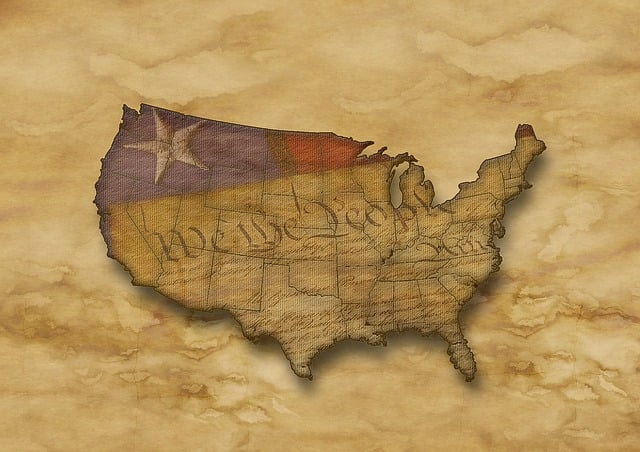
Another Preliminary Injunction in OMB Memorandum (M-25-13) Litigation
03.12.2025 | Linda J. Rosenthal, JD

“Nine years ago, the idea that charities could fall victim to fraud was met with disbelief. The term ‘fraud’ had to be used cautiously, and the notion that charities were targeted seemed far-fetched.”
At last week’s 9th annual Charity Fraud Awareness Week 2024 kickoff conference in London, participants were reminded of the dangerous level of misinformation and denial that, a decade ago, prompted a concerned coalition of nonprofit leaders, fraud experts, and government officials to take urgent action. See Lessons Into Action: Taking Nine Years of Learning to Drive Change (November 25, 2024), Fraud Advisory Panel, and Strength in Unity: How Charities Thrive Through Collaboration (November 29, 2024) Dave Carter, British Council. The project, begun in the U.K., quickly gained global interest, support, and participation.
“Charity Fraud Awareness Week brings together the charity and not-for-profit sectors from around the world to raise awareness and share good practice in tackling fraud and cybercrime.” Along with the year-round campaign to #StopCharityFraud, it is aimed at everyone in the charitable community – from board members to volunteers – as well as professional advisors, government officials and lawmakers, and “anyone else who wants to protect the sector and the crucial work it does.”
Particularly in recent years, there has been significant progress on several goals.
First is the success in dispelling the most commonly held myths about the charitable sector: namely, that “fraud doesn’t happen here” and “if it does, it couldn’t possibly be one of us.” The cold hard facts – supported by empirical data – prove otherwise.
Second is the growing awareness and acceptance of the seriousness of the threat sector-wide. “The charity sector has made incredible progress in recognising the reality of fraud risks. The message is clear: finding fraud is not inherently bad. In fact, it’s often a sign of diligence.”
The conference sponsors underscored the importance of a continuing and coordinated effort worldwide. As the British Council’s Dave Carter explained, “[t]he management of fraud within the charity sector is in a much better place than it was ten years ago, as now there is a recognition that fraud is a problem that affects us all – if not today, it will tomorrow. And there is now a group of supportive individuals who are there to help.”
At last year’s conference, BDO UK released the full report on a key survey it had conducted prior to the meeting. This year, the findings and analysis were not ready in final form during Charity Fraud Awareness Week. They will be available soon.
[Update: 12/16/24: BDO UK released the full 26-page PDF Report on December 10, 2024.] Click on underlined for the link.
In the interim, the organizers published a downloadable, 4-page PDF, “Snapshot” of the key results. See The 2024 Charity Fraud Survey, with introductory comments by Tracey Kenworthy, Counter Fraud Director, BDO UK, and Matthew Field, Head of the Fraud Advisory Panel.
As we’ve noted in our extensive coverage of last year’s Conference and Survey Report – see New Charity Fraud Survey 2023 is Out (November 30, 2023) – the findings are reasonably relevant to the prevalence of charity fraud not only in the United Kingdom but outside as well. That point is underscored by the global scope of support for these annual events and for the #StopCharityFraud campaign. Conference participants include law-enforcement officials, federal and state regulators, and counter-fraud specialists from the United States as well as from Canada, Australia, and New Zealand.
Ms. Kenworthy and Mr. Field explained: “This year we had the highest response rate for the survey, with 139 respondents, a 15% increase from last year. This demonstrates an ongoing commitment from charities to share their fraud-related experience so that we can get a clearer view of the charity fraud landscape. Despite operating in a continually challenging fraud environment, our 2024 survey reveals a real sense of development and growth in how charities manage fraud risk, from a positive stance when dealing with instances of fraud to an optimistic outlook when developing prevention strategies.”
The Snapshot document includes selected key information in chart form. The most significant results are under the categories “Types of fraud” and “Perpetrators.”
Types of fraud
This summary chart lists the top three categories of incidents of fraud as described by participants. They are:
(See Payment Diversion Fraud in the Charitable Sector (February 26, 2024), FPLG Blog and Expenses Fraud in the Charitable Sector (February 19, 2024) FPLG Blog for explanations of the second and third categories.)
There are two important caveats to the responses in this “types of fraud” classification.
First, “42% of charities reported fraud or attempted fraud (compared to 43% in 2023)” and “average number of frauds experienced in the past year decreased to 4-7 per respondent (compared to an average of 5-8 in 2023).” What does that mean? It signifies that many charities experienced multiple fraud incidents over the past twelve months, not all of which were in the same category.
Second, in a separate set of survey questions on the respondents’ perceptions of the fraud landscape – present and future – at their institutions, they did not list “misappropriation of cash or assets” in first place. Instead, “56% stated that cyber-related fraud, including phishing, was their biggest concern.” See ‘Persistent problem’ of insider fraud at charities, report finds (November 25, 2024) Chongyeng Zhang, civilsociety.co.uk. This perception vs. reality anomaly also happened last year. See New Charity Fraud Awareness Survey is Out (November 30, 2023), FPLG Blog.
Perpetrators
The self-described classification of those committing the fraud incidents (i.e., insider vs. outsider) is:
See also Charities face persistent internal fraud threat, survey finds (November 25, 2024) BDO UK.
There has been remarkable progress over the last decade in accepting the undeniable data that fraud (a) occurs in the charitable sector; (b) to an alarming degree; and (c) is primarily caused by insiders.
The organizers of Charity Fraud Awareness Week 2024 framed the current goal as “turning nine years of learning into actionable steps for charities to easily adopt.”
– Linda J. Rosenthal, J.D., FPLG Information & Research Director
